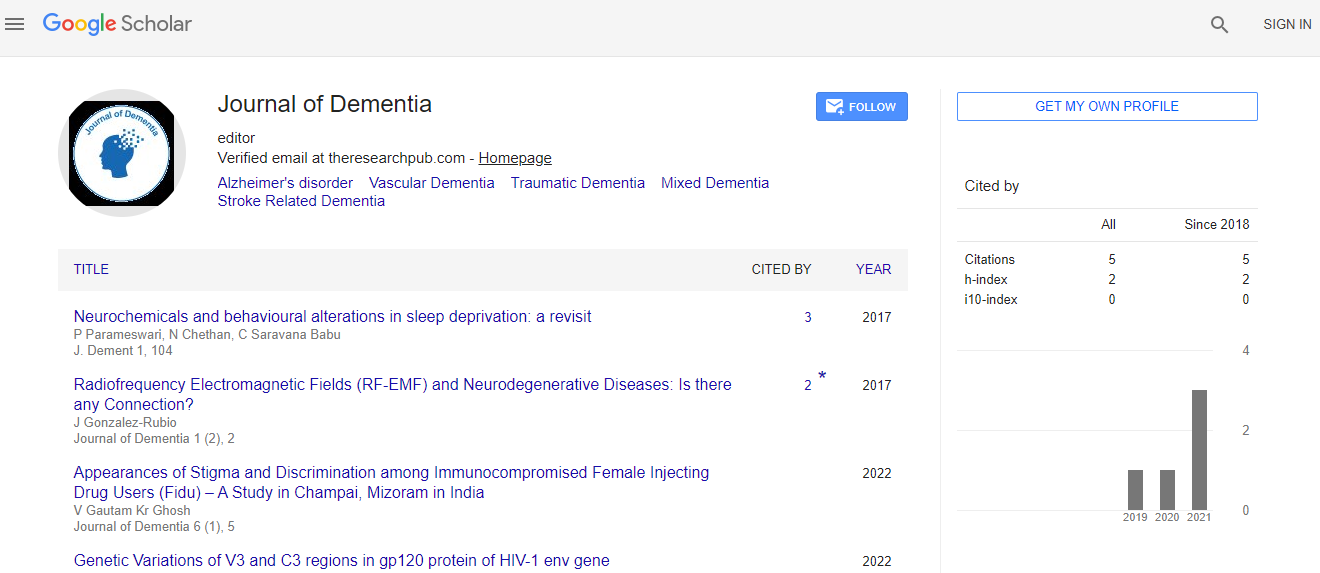Our Group organises 3000+ Global Conferenceseries Events every year across USA, Europe & Asia with support from 1000 more scientific Societies and Publishes 700+ Open Access Journals which contains over 50000 eminent personalities, reputed scientists as editorial board members.
Open Access Journals gaining more Readers and Citations
700 Journals and 15,000,000 Readers Each Journal is getting 25,000+ Readers
Google Scholar citation report
Citations : 5
Journal of Dementia received 5 citations as per Google Scholar report
Indexed In
- Google Scholar
- ICMJE
Useful Links
Recommended Journals
Related Subjects
Share This Page
Cognitive Stimulation Apps
Cognitive stimulation apps are designed to enhance mental acuity through interactive exercises and games. These apps often feature puzzles, memory tasks, and problem-solving activities tailored to various cognitive functions, such as attention, reasoning, and language skills. Popular examples include Lumosity, which offers a range of brain training games, and Elevate, which provides personalized challenges to improve skills in reading, writing, and math. By regularly engaging with these apps, users can potentially boost their cognitive abilities, maintain mental sharpness, and even delay the onset of cognitive decline.
Scientific Support for Brain Training Apps
The scientific community is divided on the efficacy of brain training apps. Some studies suggest that these apps can lead to improvements in specific cognitive tasks, particularly those that are directly trained by the app. For instance, users may become faster and more accurate at solving puzzles or remembering sequences of numbers after consistent use. However, these improvements are often limited to the tasks within the app and do not always translate to broader cognitive gains in everyday life.
Criticism and Limitations
Critics argue that while brain training apps may improve performance on certain tasks, there is little evidence to support the idea that they can significantly enhance overall cognitive function or prevent cognitive decline. Many studies that show positive effects are either short-term or conducted with small sample sizes, limiting their generalizability. Furthermore, the concept of "brain training" itself is debated, with some researchers suggesting that physical exercise, social interaction, and a healthy lifestyle may be more effective in maintaining cognitive health.
Ongoing Research
Ongoing research continues to explore the potential benefits and limitations of brain training apps. While some recent studies have shown promising results, particularly for older adults at risk of cognitive decline, the consensus remains that more rigorous, long-term studies are needed to fully understand their impact. Until then, brain training apps should be viewed as a supplemental tool for cognitive stimulation rather than a guaranteed method for improving brain health.
Cognitive Stimulation Apps
Expert PPTs
- J. Lucas Koberda
Electrical Brain Imaging
PPT Version | PDF Version - Nilanchali Singh
Obstetrics and Gynaecology
PPT Version | PDF Version - Mohammad Reza Daliri
Cognitive Neuroscience
PPT Version | PDF Version

 Spanish
Spanish  Chinese
Chinese  Russian
Russian  German
German  French
French  Japanese
Japanese  Portuguese
Portuguese  Hindi
Hindi 